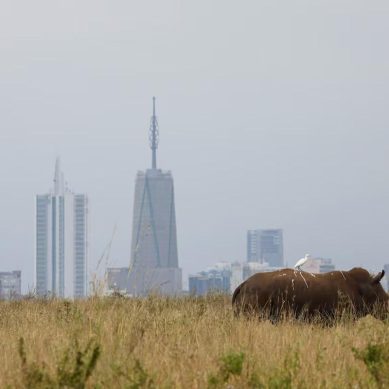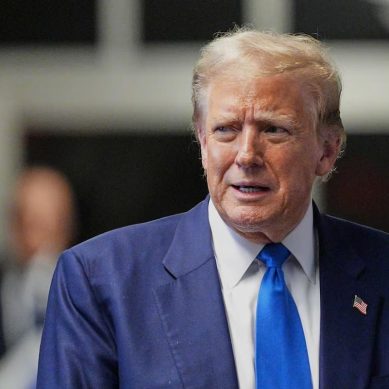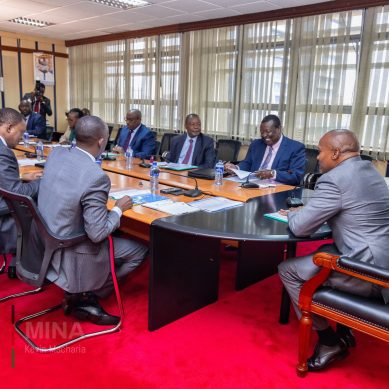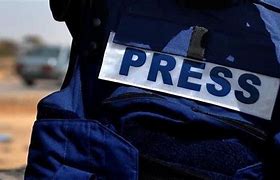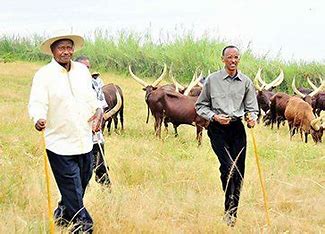
Continued…
Let me emphasise! In Uganda it was mostly Tutsi refugees initially organised as Front for National Salvation (FRONASA), ostensibly to dislodge Idi Amin Dada from power; then as Uganda Patriotic Army (UPA) to dislodge Apollo Milton Obote’s second tenure; and then they were helped by former president of Uganda, Yusuf Kironde Lule who, with a few Baganda neo-traditionalists, formed the National Resistance Movement (NRM) and National Resistance Army (NRA) and summarily passed both onto Yoweri Tibuhaburwa Museveni and his group.
Members of the Yusuf Lule group believed they were participating in NRM/A as equals in the Project Dislodge Obote (PDO) and later in the Project Dislodge Tito Okello (PDTO). Initially many Baganda were included in the first NRM/A administration, which included many Rwandese refugees. Lule himself held the powerless post of chairman of NRM until his death.
However, it became clear that the command structure of the NRA was dominated by former FRONASA and PRA combatants of Yoweri Tibuhaburwa Museveni. Ultimately, NRA captured power in Uganda on January 25, 1986 after waging a bloody five-year bush war in Luwero Triangle from 1981. Today, there is little or no evidence that the Lule group was part of the NRM/A onslaught to capture power. The overwhelming number of commanders of UPDF are people from the Tibuhaburwa Museveni group or those connected to them opportunistically.
Tibuhaburwa Museveni is the undisputed chairman of NRM and Commander in Chief of all armed forces in the country.
FRONASA was, therefore, a deceptive coinage. The absolute majority of Ugandans never imagined that it referred to salvation of the Tutsi nation. They did not think about it critically. They were hoodwinked into thinking and believing that FRONASA was about salvation of Uganda. Like the nation of Israel that had become a refugee nation in Egypt, and needed God to organise its salvation through the hand of Moses, the Tutsi nation became a refugee nation in Uganda where many were in in dehumanising slavery. They needed Tibuhaburwa Museveni to salvage them. He performed, and has been performing, the task very effectively using his high military and political acumen, combined with capacity to use his tongue skilfully to convince the masses and the elite that he means well for Uganda.
Apparently, the post-Amin governments before Obote Two integrated FRONASA fully in the Uganda National Liberation Army (UNLA) physically, but the collective mindset of FRONASA was aloof and focused on capturing the instruments of power from Ugandans to rule Uganda and use them to help their kind to capture power in Kigali. The close ethnic relationship of the Tutsis to the Hima has served them well because they can conveniently pose as Bahima. And many people think they are building a Tutsi-Hima dynasty, not only in Uganda but the whole Great Lakes Region.
The military and political skills, which have helped the Tutsi nation to effectively occupy Uganda, include the skill to tune the constitution-making process of the early 1990s to serve the interests of the occupant nation. The resulting Uganda Constitution 1995 concentrated all power and authority in Uganda’s perennial ruler and former chief commander of FRONASA and PRA; created an artificial indigenous group called Banyarwanda to accommodate the former non-Ugandan FRONASA and PRA elements and the numerous elements from Rwanda who had no cultural, biological and ecological ties to Uganda; reduced the traditional rulers who in the past had political, cultural and spiritual power, to just cultural leaders, positions that used to be held by some of the clan leaders; and allowed the military (some of suspect origins) to sit in the Parliament of Uganda to make laws for Ugandans.
In a way the military, in its disoriented composition, managed to superimpose itself over the elected representatives of the people. This has ensured that for over 37 years of NRM rule, it is more or less military rule of NRA whose name was constitutionally changed to Uganda Peoples Defence Forces (UPDF), which to-date is commanded at various levels by people connected to the five-year bush war of the NRA or to the families of those who participated in the war.
It is not even clear to most Ugandans what the owners of the Movement are still resisting, if not Ugandans. Before they were resisting Amin, Obote and Tito Okello.
The skill of President Tibuhaburwa Museveni to go on changing the Uganda Constitution 1995 to serve the interests of the bush war combatants in power has played a critical role in entrenching the occupation of Uganda militarily and, by extension, socially, economically, politically, culturally, ecologically, environmentally and futuristically.
Today, it is people connected to the dominant group in power that is grabbing all the land, all the businesses, all the waters, all the forests, all the opportunities and all the plum jobs, with people of other nationalities serving no more than slaves. The greatest slaves are the elites of Uganda who do not think beyond having good jobs to bring money for them, or other opportunities such as scholarships for their children.
So, when President Tibuhaburwa Museveni says the time for identity politics is long gone and has given way to interests politics, he knows what he is talking about. The beneficiary group is now known by most Ugandans who care to follow what has been unfolding.
In order to sustain the dominance of the “dominant” group in power, President Tibuhaburwa Museveni has used militarisation and criminalisation of society and certain groups of Ugandans quite effectively. Almost everything in Uganda is militarised – executive processes, legislative processes, judicial processes and electoral processes. The introduction of Mchaka (military indoctrination) saw many youths and adults become militarised. It was easier for one who went through militarisation to get a job. Many posts in government departments and ministries as well as cabinet are held by military personnel or people who were soldiers before.
This has meant that the command-obey approach to governance is superior to the negotiated approach. Many posts of Resident District Commissioners (RDC) and their deputies are held by soldiers, some of the Tutsi nationality. Because the Tutsi are closely related to the Hima of Ankole it is easy to dismiss the Tutsi holding critical positions in government and in parastatals as Hima, when this only hides the truth of occupation of Uganda
Besides, the Uganda police became so militarised that today virtually all command posts from top to bottom are held by miliary posts, except for Inspector General of Police. However, before the Inspector General of Police was for a general in the army. At one time a person of Tutsi nationality whose brother was also at one time an Inspector-General of Police in Rwanda, was Inspector-General of Police of the Uganda Police. Everything is done at the behest Rwandan President Paul Kagame.
Critical scholars may want to investigate the influence of militarisation on leadership and governance of Uganda from 1986 to present. It is no longer right to say Uganda police is a policing force. It is more or less an occupying military force. Interested academic researchers may investigate this assertion to provide scientific information on the matter.
Militarisation has been overstretched by tuning the national budget to overcapitalising the military apparatus, which today consumes far more money than the social spheres of education, health and agriculture, either by direct budgetary allocation or other means. Some of the money is used to erect paramilitary groups of the Rwandese Interahamwe type of President Juvenal Habyarimana assassinated by Tutsi rebels of the NRA offshoot called Rwanda Patriotic Army (RPA) funded by the NRM/A regime in Uganda. The continuous talk by President Tibuhaburwa Museveni of the need to build a strong army, points to continuous militarisation of the national budget away from meaningful and effective development of Uganda and Ugandans.
Criminalisation as a strategy of occupation of Uganda has been most effective in excluding alternative political organisations of indigenous Ugandans. Political parties, since President Museveni captured the instruments of power, have been confined to their headquarters. They are not allowed to access the population after elections, whereas politicians of the ruling party are free to do so between elections and all the time. If they contravene this the militarised police easily pounces on them.
As if this is not enough, there are laws purposely designed to disable them. These laws include the Sectarianism Act, the Terrorism Act and the Political and Other Organisations Act. Collectively or individually, they can be and have been, applied to ensure that political actors are excluded from effectively participating in the political governance and leadership of the country.
Instead, people in alternative political parties are either bought or coopted out of their parties to serve the interests the military owners of the country.
Therefore, the occupation of Uganda by FRONASA-linked rebels who formed government in 1986 has proceeded for long through a combination of strategies including militarisation, criminalisation, and firm grip of the occupants on critical processes such as the executive, legislative, judicial, social, financial, cultural, ecological, environmental, budgetary and administrative processes.
We need liberation of the collective Ugandan mind to effectively reverse our deplorable situation. Mind liberation will help us to begin to understand why we have a Uganda that is so hooked to violence, militarisation accompanied by criminalisation using laws such as Terrorism Act, Sectarian Act and Political and Other Organizations Act, which do not add value to the democratisation of Uganda. Democratisation should be taken to mean, among other things, ownership by Ugandans of all processes that characterise an independent and sovereign country, including budgetary, development, executive, legislative and judicial processes as well as citizenship and nation building.
- A Tell report / By Prof Oweyegha-Afunaduula, a former professor in the Department of Environmental Sciences of the Makerere University, Uganda
